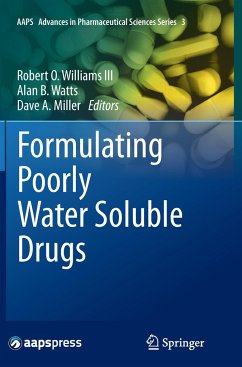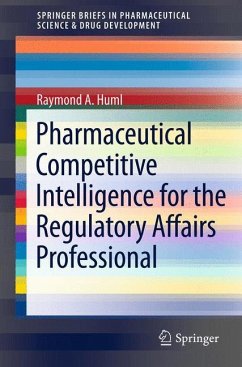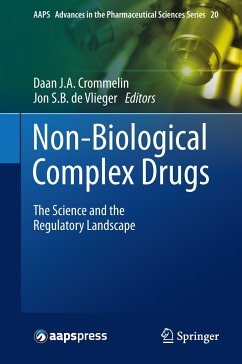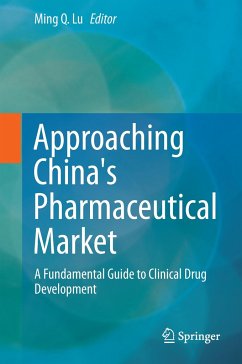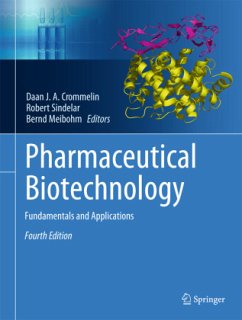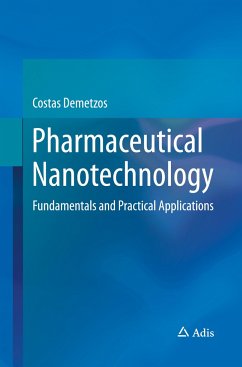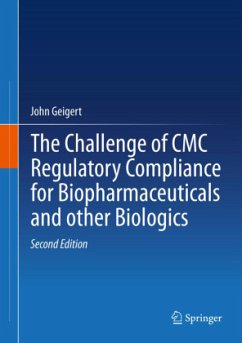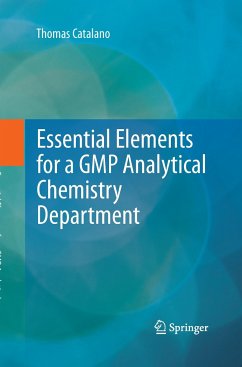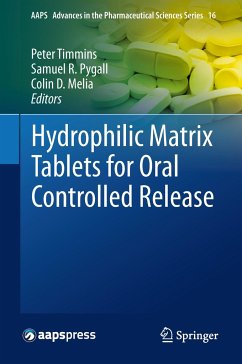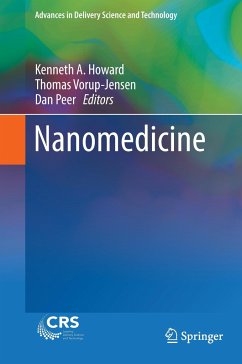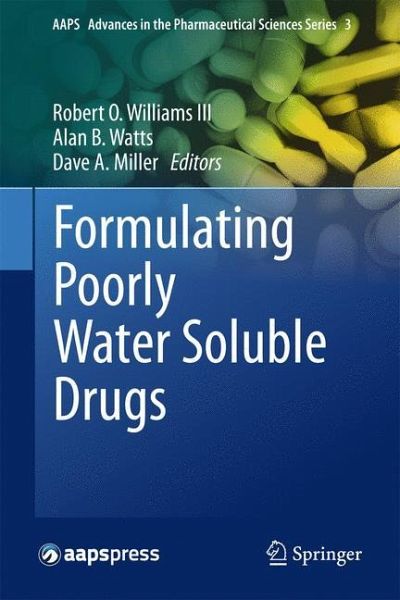
Formulating Poorly Water Soluble Drugs

PAYBACK Punkte
76 °P sammeln!
A pharmaceutical scientist s approach toward solubility enhancement of a poorly water-soluble molecule typically includes detailed characterization of the compound s physiochemical properties, solid-state modifications, advanced formulation design, non-conventional process technologies, advanced analytical characterization, and specialized product performance analysis techniques. The scientist must also be aware of the unique regulatory considerations pertaining to the non-conventional approaches often utilized for poorly water-soluble drugs. One faced with the challenge of developing a drug p...
A pharmaceutical scientist s approach toward solubility enhancement of a poorly water-soluble molecule typically includes detailed characterization of the compound s physiochemical properties, solid-state modifications, advanced formulation design, non-conventional process technologies, advanced analytical characterization, and specialized product performance analysis techniques. The scientist must also be aware of the unique regulatory considerations pertaining to the non-conventional approaches often utilized for poorly water-soluble drugs. One faced with the challenge of developing a drug product from a poorly soluble compound must possess at minimum a working knowledge of each of the abovementioned facets and detailed knowledge of most. In light of the magnitude of the growing solubility problem to drug development, this is a significant burden especially when considering that knowledge in most of these areas is relatively new and continues to develop. There are numerous literature resources available to pharmaceutical scientists to educate and provide guidance toward formulations development with poorly water-soluble drugs; however, a single, comprehensive reference is lacking. Furthermore, without access to a vast journal library, the detailed methods used to implement these approaches are not available. The objective of this volume is therefore to consolidate within a single text the most current knowledge, practical methods, and regulatory considerations pertaining to formulations development with poorly water-soluble molecules.





